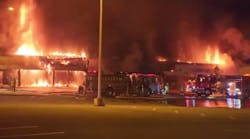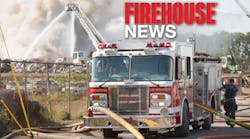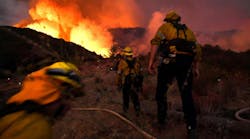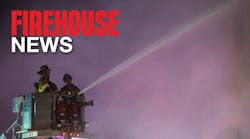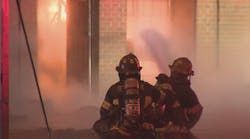A leader's experience will often be the true litmus test of their competence.
Ingrained in fire service leaders must be, among other things, care, concern and competence. In this article we continue our series on the leadership journey and we will discuss competence in terms of a leader's experience.
Competence is the most important leadership trait that a fire service leader must posses. Sounds simple. You want your leader to know what he or she is doing! By what scale do you measure competence? Does passing a test or winning an election mean you are competent? It may be the mechanism of selection but is it a true measure of competence?
A leader's experience will often be the true litmus test of their competence. This is, of course, if they have had positive experiences. By experience I mean the real experience, the "been there done that" kind. The kind of experience you actually get by actually working in the busy places, not just being there long enough to have a cup of coffee and get the t-shirt.
That is the experience that a leader falls back on when "it hits the fan." It's that knowledge that gets them through the tough jobs and brings everyone back. If you have experience, you will remember what worked and what didn't. Every leader has stories of events that happened to them. They will remember, "Oh, I will never do that again" or just a note to self, "Now that didn't work." These stories are not just in the fire service. Did you ever try to make electrical repairs at home? Did you ever cross the wrong two wires? Then you have one of those stories.
Firefighting is a technical profession that requires a certain amount of technique. This does not just involve hazmat or technical rescue. Structural firefighting has many disciplines that can be very technical. Forcible entry, proper ventilation, and hose stream practices are very technical. If you don't believe me, start a discussion with a group of firefighters on the fog versus solid stream fire attack. You will hear how technical and how much technique is involved in the application of water on a fire. How many gallons per minute should we flow? What pattern of fog stream, that is if you have resolved the solid stream issue! Do we advance the line "duck-walking" or "on our knees" or some combination? Or don't you care "just get in and put the fire out."
A leader needs to know this. The misapplication of water can cause steam burns. Improper ventilation can increase the fire intensity and endanger everyone in the structure. If forcible entry is not accomplished we cannot complete our mission of rescue and fire attack.
This experience cannot be faked. Either you have it or you don't. If you don't have it your people will recognize it. This is one time a boss may need to check their ego. If you don't have experience of your own you need to work with the guidance of your subordinates. Firefighters will help a boss through difficult times, they don't want to see any of their guys hurt because of an inexperienced officer, but you must listen! This does not diminish your responsibility as the boss, but it allows you to recognize their experience and the fact that they are here and they are doing it.
So what do you do if you don't have the greatest amount of experience? If you got to be the boss with out it, it may be tough to get now. This is where not taking the road less traveled will pay off (see "The Journey: A Commentary on Leadership."). As an option we can learn from the experiences of others. This is not the way all lessons should be learned. Recognizing the warning signs of flashover or structural collapse would certainly be best learned first hand, but as they are rare occurrences, we need to learn those lessons from those with first hand knowledge.
Hands-on training offered by reputable training instructors under the strictest safety regulations, NFPA 1403 are a good second best. The live fire training and exposure to the real thing under "controlled" conditions will be a valuable learning experience. I have "controlled" in quotes because we are still talking about live fire training and can we ever "control" the situation? We can take measures to reduce risks from known hazards. There is still danger, but competent instructors will do everything to eliminate as many dangers as possible, but accidents can still occur.
Learning from others with the training allows us to spread our knowledge to others. I call this, the "don't pet the skunk approach." Does everyone need to have been sprayed by a skunk to learn it is not a pleasant experience? This is one of those times when a very valuable lesson can be learned from the experience of someone else.
Similar lessons can be learned from listening to firefighters tell stories. Firefighters tell stories to pass on information learned at fires and emergencies. Listen to the stories, ask questions, gain from the perspective and make the experience your own. Analyze the story and break it down to lessons learned. Analyze the story because there may be an occasion when a firefighter may have embellished the story, but the basic truths will remain the same. This is what we will learn from.
Learning from stories is no substitute for having done it yourself, but how does a young firefighter learn the lessons of a careers worth of knowledge from a senior man? He listens and learns from the story.
The goal is to have a base of knowledge so that when you are faced with something for the first time you can recall the story and the lesson and act accordingly, safely. You may just say, "It happened just like they said it would."
There are other places to get the stories. FirefighterNearMmiss.com is a website that posts the near-miss events that occur to firefighters everyday. This site combines a nations' worth of stories of how firefighters got in trouble and lived to tell about it. This is an excellent resource to learn from others experiences. This is where you learn who pet the skunk!
Another option to learning from other experience is the NIOSH reports. These are often written because someone didn't live to tell about it. They analyze the facts that went into making the event the hellish reality. They make recommendations for improvement, and they confront the truth with an unbiased opinion.
As you can see as we progress from firehouse war stories through near misses and end with NIOSH, the consequences have become greater. Often the most important lessons learned in the fire service are paid for in firefighters blood. That is why training and experience of our leaders is so critical.
A long-time friend and prophetic fire instructor, Jerry Knapp, explains that instruction in the fire service is like putting a message in the bottle and tossing it in the sea. You never know if the message was received or read.
Jerry explains it this way, "the experience you seek must be reached for, you have to seek it out by reading, discussing, questioning... Aggressively reach out, grab the bottle and read the message, experience inside! By letting it float by, you never know what you missed may come back as an injury or death at your next alarm."
How do you know someone actually listened or read the message? Did they gain from the experience they reached for? You will know because you will be successful at your next alarm. Success measured in terms of a safe response and efficient operations. You will know because nothing bad happens! No one gets hurt, no near-miss, and no NIOSH report, that is a good day. You will know they must have learned something.
If ever in your career you use something that someone taught you, let them know. It is one of the small victories for an instructor.
As I continue with this series I would like to get some feedback from you. Comments and questions are welcome. Stories of success, as well as failure, should be shared so we all can learn from them. Share your stories with me by e-mail at: [email protected].
Look for the next article, "The Journey: Missed opportunities." As always, stay safe.
CHRISTOPHER FLATLEY, a Firehouse.com Contributing Editor, is a 20-year veteran of the FDNY and a lieutenant currently assigned to Ladder Company 21 in Manhattan. Chris has twice served as chief of the Blauvelt, NY, Volunteer Fire Company and is currently the assistant chief and training coordinator. He is a nationally certified Fire Instructor 1 and is an instructor at the Rockland County, NY, Fire Training Center and holds a degree in fire protection technology. He is a Master Exercise Practitioner on the Exercise Design Team through the Center for Terrorism and Disaster Preparedness. To read Chris' complete biography and view his archived articles, click here. You can reach Chris by e-mail at: [email protected].
